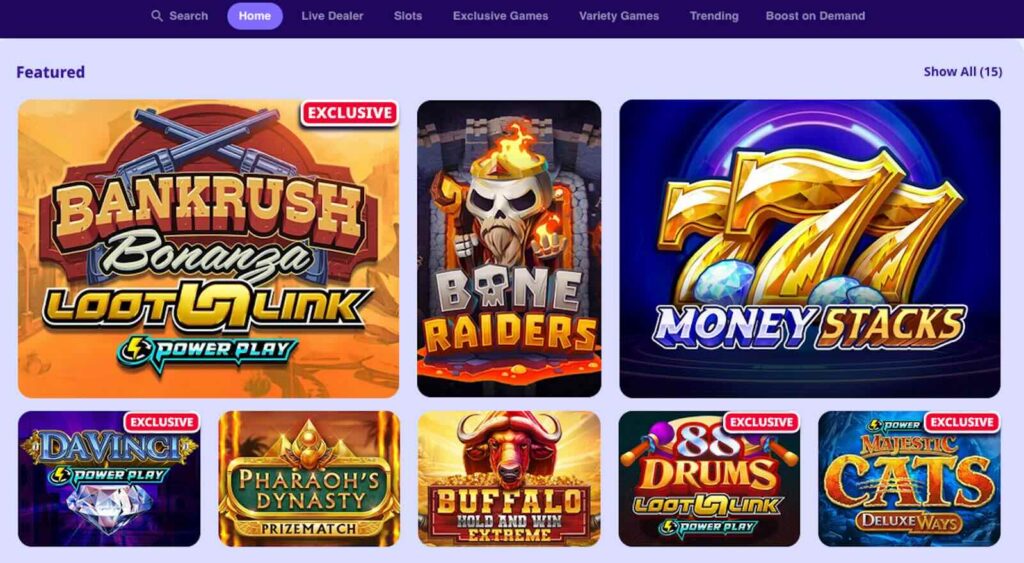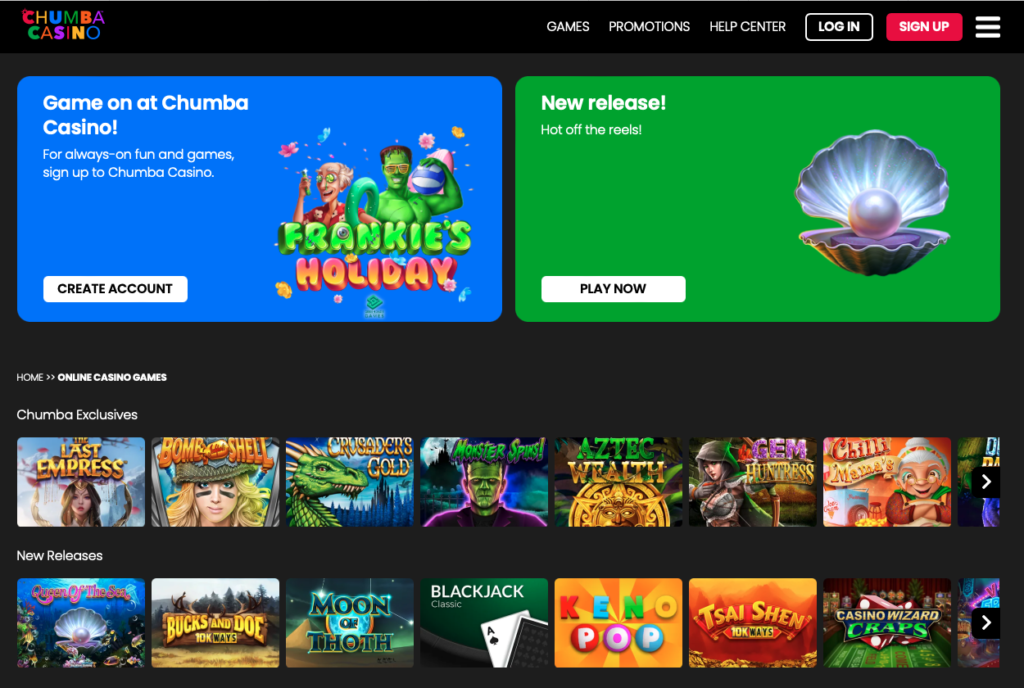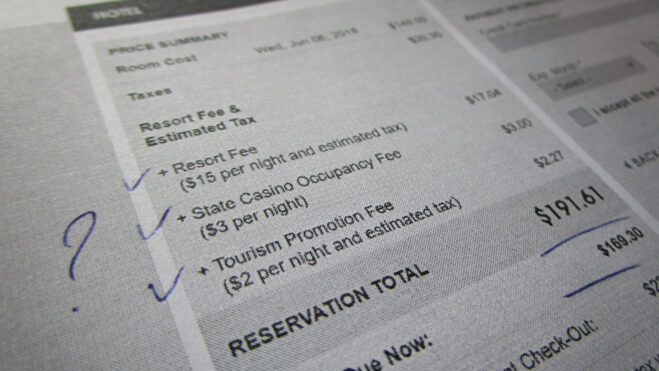Clean Sweep: Advantage Players Have Found Edges In Sweepstakes Casinos
‘I know one who’s making around $60,000 a month from doing this right now’
14 min

The late Doyle Brunson is credited with calling the game of poker “a hard way to make an easy living,” and it’s a statement that applies to any form of gambling where it’s possible, by skill or by scheme, to come out ahead in the long run.
Nowadays, everyone knows about the existence of professional poker players, professional sports bettors, and professional blackjack card counters — there have been mainstream movies made about all of those. More recently, stories have spread about casino “advantage players,” folks who can spot progressive-style slot machines in a positive-expected-value state or who grind promotions with a discipline that allows them to come out ahead.
These are hard ways to make an easy living. They come with risk, but, as another cliché goes, it beats digging ditches.
Now, however, a group of advantage players — or APs — might just have found an easy way to make an easy living, in a vertical that many in the gaming world didn’t even know existed until a year or two ago.
Yes, the “pros” are out there beating the sweepstakes casinos.
Sweeping definitions
Before we get into the “how,” we must dive into the “what” — as in, “What is a sweepstakes casino?”
The terms “social casino” and “sweepstakes casino” are often used interchangeably, but they’re not quite the same. What they have in common is that they aren’t taxed and regulated under the legal online casino laws that exist in seven U.S. states, and that they don’t require a real-money deposit to play. This is in fact a critical governing factor of sweepstakes law: Not just casinos, but any sweepstakes product must offer a method to enter without making a purchase.
What makes sweepstakes casinos different from their social counterparts is that they feature two forms of on-site currency, one of which can be converted to prizes or to real money. In overly simplistic terms: Imagine a site where you deposit $100, which becomes 100 diamonds on the site, and once you play through them, you can convert diamonds back into dollars at a 1:1 exchange rate and withdraw them.
Again, it’s an oversimplification that ignores many intricacies, but it captures the basics of the dual-currency concept while exposing the rather unsubtle loophole that permits this other form of online casino to operate.
Whatever the divisively fuzzy edges, one thing about sweeps casinos is not in dispute: They have become a huge business. According to the industry analysts at Eilers & Krejcik Gaming, estimated 2024 net revenue from sweepstakes operators in the U.S. will be $3 billion.
This is not just some fun little play-money option with zero risk to the customer. Those don’t net $3 billion.
Starting with the basics

But for all the many folks out there losing and contributing to that $3 billion in revenue for the operators, there are a select few beating the house. At least one group of advantage players is sharing its tips and tricks in a Discord channel, and a source engaged in the group’s activity, speaking on condition of anonymity, explained the inner workings to Casino Reports.
Notably, the source said, the participants in this group are, for the most part, not casino APs or sports betting pros. They come from other walks of life, including former Wall Street types who are attracted to a good hustle.
They break the ways to beat the sweeps casinos into three levels of play, which they define as “basic,” “intermediate,” and “advanced.”
“Basic” is quite basic, indeed. Because the law requires that sweepstakes casinos offer a chance to play for free, each site gives away Sweeps Coins — which can be redeemed for cash once you have enough of them — every day to every player who logs in.
The amount varies from site to site, but on average, it’s about $1 per day per site. Some casinos give players a static amount, others award a spin on a wheel or some other such random game to determine the amount that day.
The sweepstakes casinos do have a minimum withdrawal amount (typically $100) and a playthrough requirement (typically 1x). So, let’s say you collect a free dollar in Sweeps Coins each day and do nothing else on the site. To get real money that you can withdraw, you’d need to log on daily for about four months to build up an account of about $120 in Sweeps Coins, play through that $120 on a high return-to-player (RTP) game (like blackjack), and hope that after 120 hands for $1 apiece, you still have at least $100 in your account and can cash it out.
There are, according to the group’s Discord, some 25 different sweepstakes casinos (and counting) handing out daily rewards. So, this is time consuming, but a player logging into 25 apps and withdrawing $100 (a conservative estimate, assuming some below-average blackjack luck) from each at the end of four months would be profiting $2,500.
“You can do that a few times a year,” the source said, “and net yourself a nice few grand for doing absolutely nothing. And you incur no risk, as long as you don’t make any deposits.”
It’s not a get-rich-quick scheme. It’s a make-a-modest-amount-of-money-excruciatingly-slowly scheme. But it’s a starting point for the APs’ system.
Pump up the volume
The “intermediate” approach is the one that’s most central to how these APs are making money on sweepstakes casinos, though it is not without risk, because it requires real-money deposits.
To comply with sweepstakes laws, when a player makes a real-money deposit, they receive Gold Coins — which have no real-world value — in exchange for their money. And on top of that, they are given, out of the goodness of the sweeps casino’s heart, Sweeps Coins. And to incentivize people to play on their site, the number of Sweeps Coins usually slightly exceeds the number of dollars deposited.
In a typical transaction, you’ll deposit $100, and the site will turn that into some irrelevant number of Gold Coins for you, plus they’ll give you 105 Sweeps Coins.
The math is simple: Find a game that has an RTP above 95.24%, play exactly 105 Sweeps Coins’ worth of the game, and on average, you’ll have more than $100 available to cash out. Played optimally, blackjack has an RTP over 99%. Baccarat has an RTP just a shade under 99%. Some slots games come in as high as 99.1% RTP, and although those particular games are rated as “high volatility,” there are “low volatility” games that go as high as 98.74% RTP.
The math is simple: Find a game that has an RTP above 95.24%, play exactly 105 Sweeps Coins’ worth of the game, and on average, you’ll have more than $100 available to cash out.
The APs refer to playing through the deposits as “washing” Sweeps Coins. If you close your eyes, you can almost hear Saul Goodman explaining how the conversion process works.
The source explained: “If you make one deposit for $100 with about a 5 percent edge, not a big deal. But, do 1,000 of those deposits every day, and now instead of five bucks it’s $5,000. There are a lot of ways to get even more money or extra bonuses, but the basis of it is that you can get more than $100 for a $100 deposit.”
Then there’s this element of the “intermediate” approach: Many of the sweepstakes sites have “Happy Hour” offers and other opportunities for deposit bonuses, and the APs keep track for each other of who is offering what and when. At certain times, instead of 105 Sweeps Coins for your $100 deposit, the offer is 150 Sweeps Coins. Play 150 hands of blackjack at $1 apiece, and your expected value is between $148 and $149.
“And they’re doing this over and over and over and over again,” the source said. “Hundreds of thousands a month for a lot of them. High volume. For the ones who are stock market guys, to them, they’re making annual stock market returns every day.”
But wait, there’s more
The third level, known as “advanced,” overlaps somewhat with the latter part of the “intermediate” segment, as it’s also about putting in the extra time and effort to unlock additional value.
Some sweepstakes casinos have VIP programs, offering extra rewards to customers who play with great regularity. The source said there’s one site that gives a player the equivalent of $4,000 if they reach the top level. There is also rake-back for VIPs, increased log-in rewards, and larger packages of coins available for purchase.
“It can be risky,” the source said, “because you have to grind through billions of coins to reach the highest level, and you may have to keep buying them to get to the next level if you’re running bad. You have to determine if what you’re getting back long-term is worth what you’re spending and losing theoretically short-term.”
On top of all that, some of the APs are piling bonuses on top of bonuses by making deposits on credit cards with strong cash-back programs and spending hefty amounts.
“If you’re getting 2 percent cash back every time, that adds to your EV. When your margins are 5 to 6 percent, adding 2 percent is pretty big. That’s just adding another dimension to the whole process.”
So just how much money are these APs making if they’re treating it like a full-time job and working every angle?
“I know one guy is depositing $400,000, $500,000 a month and getting about 10-20 percent return,” the source said. “So, making somewhere around $60,000 a month from doing this right now.
“The average person, doing it for side income, is probably making between $1,500 and maybe $4,000 a month. Those are regular guys with jobs. And it’s not hard. It just requires basic casino game knowledge. It’s accessible. It’s much easier than writing a sports betting model. It’s much easier than hole-carding at a casino.”
What’s the catch?
Learning about all of this begs two questions, which are related to each other: Why are the sweepstakes casinos willing to lose like this? And is there risk to the players?
Let’s tackle the second question first. Short answer: Yes. There is risk.
“About 80 percent of APs fail, across all forms of AP-ing. Why? Because they become addicted,” the source said. “I hate to say it, but it’s true. I’ve seen some of these guys in the Discord fall off the rails. It’s like how casinos don’t mind most card-counters because they don’t know what the hell they’re doing and they’re just degen-ing. It’s the same thing with the sweepstakes casinos. You need razor-sharp discipline and focus to do this kind of thing, and a lot of people don’t have it. So even if the community is 1,000 people, I’d say about 200 of them are successful, if that.”
The source feels the sweeps casinos are generally less predatory than most regulated casinos, but they are more predatory in one way: their relatively high withdrawal minimums. Most are $100 — like WOW Vegas, Pulsz, and Chumba Casino, for example. A handful are $75, and a couple of the ones you may have heard of, like Fliff and Luckyland, have $50 minimums.
Using the sweeps casinos with $100 minimums as an example, if you have 95 Sweeps Coins in your account, you need to either patiently collect your daily freebies until you’re over 100 and then cash out; deposit more money and play through that; or just keep playing with your 95 and hope to get over 100 before you go down to 0.
And many of the sites offer deposit packages for less than $100 — which is not an issue for these APs, but it is for casual players who don’t understand the rules initially. A casino may start with a welcome offer that sounds fantastic, like “deposit $10, get 30 Sweeps Coins.” Well, chances are slim a player will run that up to 100 coins before they’ve been ground down to nothing. Or once they realize the situation, they may deposit another $70 or so and play through that to hopefully have the withdrawable equivalent of $100 in their account.
So, yes, players lose their deposits. Often it’s the casual players, but it can happen to the APs also if they aren’t disciplined, if they slip into allowing themselves to truly gamble.
And that largely answers the question of why the sweepstakes casinos don’t seem to mind that there are groups of players out there taking advantage of all their offers and beating them. The source noted that sometimes the APs do get “rugged” (banned) on certain sites, particularly if they’re not engaging in basic countermeasures to camouflage their play — like leaving money on the site sometimes instead of always withdrawing it, or like mixing in the occasional lower-RTP game. If all someone is doing is depositing and withdrawing, rapid-fire, they may get banned or have their deposits limited.
But for the most part, the operators seem not to care because — well, remember that $3 billion number Eilers & Krejcik projected? The house is winning a lot more from the casual players and from the would-be APs who lack discipline than the house is losing. Not to mention, to the operators, it’s worth the occasional loss to boost their market share and visibility and prop up their search rankings.

Origin story time
The sweepstakes gaming concept has come a long way from its relatively humble beginnings.
Brett Calapp is now the chief operating officer of Bally’s North America Interactive, but for most of the last couple of decades, he’s been an independent entrepreneur in the gaming space. And in 2008, he was one of the brains behind Club WPT, a legal U.S. online poker option (when most online poker in the U.S. was taking place in a gray area of the law) that is among the first known examples of a sweepstakes-style gaming model that found an audience.
The site was developed in partnership with the World Poker Tour and it was, as the name suggests, a club, with monthly dues and a chance to play poker for real money — more or less. For a fixed fee of $20 a month, you were in the club and could play tournaments and ring games using on-site currency and you could win cash, prizes, and live WPT tournament seats.
Was it successful? In an age where some people were playing for hundreds of thousands of dollars in a single hand on Full Tilt Poker, was there an audience for this low-stakes approach to the game? The answer is captured in the fact that, some 16 years later, Club WPT is still around.
“The fundamental concept of Club WPT was that we wanted to create a safe environment that had caps on risk,” Calapp told Casino Reports. “It was a business model that took into account that this sort of poker was not for everybody, but could find its place in the poker ecosystem. And it needed to have what I would call the ‘prize effect.’ There needed to be a range of prizes that people would want to play for, because you had to have a prize component to make the games competitive.”
Calapp worked closely at the time with gaming lawyer Anthony Cabot to make sure the project was on the correct side of the law.
“Remember, this didn’t exist anywhere. We were pioneering it. So we had to make sure that we were abiding by sweepstakes laws on a state-by-state basis,” Calapp said. “We didn’t take any shortcuts. We spent a great deal of time on the risk analysis of, yes, sweepstakes is legal, but what about sweepstakes that use a gambling mechanic? Dice, a wheel, a ball — that gets into a different kind of risk profile. So do we want to be there or do we not want to be there? And we always wanted to make sure that at the end of the day, if anyone ever questioned the model, we had a very well thought-out reason behind why we believed we were operating legally.”
Transitioning to casino
A few years later, in 2012, Calapp adapted the concept from poker to casino games with his company RocketFrog, which partnered with Facebook and helped introduce the idea of what became known as social casino.
The focus was on tournament play — blackjack tournaments, slots tournaments. Calapp said it didn’t take off like he’d hoped, “but I think it was a really good proving ground, and a stepping stone to what you could do in casino, as far as the subscription model.”
There was nothing social about it, Calapp acknowledges — in stark contrast to playing in a physical casino, which often is a very social experience — but because of the connection to social media, the term stuck.
And the concept was gradually adapted and expanded upon. Some of the current sweepstakes operators existed before 2020 — such as Fliff, which launched in 2019 — but it was during the COVID-19 shutdowns that a rash of them began springing up. Regulated, real-money online casino play was only legal and operational in New Jersey, Pennsylvania, and Delaware at the time (and West Virginia launched in July 2020). In all other jurisdictions, Americans looking to play casino games had very little in the way of options. High demand and low supply combined to get the sweepstakes casino model off the ground.
And in 2023 and 2024, it has particularly gathered steam.
“Since late last year, it has really accelerated,” observed Jonathan Michaels, an industry consultant with Michaels Strategies who previously worked for the American Gaming Association and worked in government affairs for Sightline Payments. “I hear about new sweepstakes businesses like every two weeks. I hear about it from a lot of industry leaders. It seems like a business that a lot of people are trying to get into because they’ve seen the growth of it.”
As an example on that front, on Catena Media’s most recent earnings call, the affiliate company’s CEO Manuel Stan said, “We see [sweepstakes] as the fastest-growing vertical for us, and we expect it to continue growing. … Our products are focused on growing the sweeps vertical.”
Another example of the sweepstakes movement: After trying for a little under two years to make it as betting exchange in New Jersey, Prophet Exchange recently announced its move into sweepstakes sports betting under the ProphetX brand. Likewise for former traditional bookmaker NoVig, which had launched in Colorado in March but has since exited to announce a pivot like Prophet to a sweepstakes model.
How long will it last?
Of course, with growing popularity, and with multi-billion-dollar revenue projections, comes scrutiny.
The AGA recently made public its concerns about sweeps casinos, and several states’ regulatory bodies — Idaho, Washington, Michigan, and Delaware — have taken actions to try to stop some of the operators from serving their states. But there is a general confidence among many in the industry that sweepstakes casino is a legal product.
“It’s largely a matter of, what’s the letter of the law versus what might be the spirit of the law?” Michaels said. “Sweepstakes is, I would say, much clearer on a state level than daily fantasy sports is. And the DFS example is worth noting. There’s been a lot of scrutiny, but the operators that have come under some pressure, they’ve pivoted the games where they’ve been required to. Some of them have switched from against-the-house to a peer-to-peer product.
“Not to say that’s a direct analogy to what will happen with sweepstakes, but these are big, sophisticated businesses and they will pivot if they’re forced to. Maybe they have to pull out of some states. But overall, I think the sophisticated businesses here will find ways to continue to operate in some way, shape, or form.”
Still, it presents a concern to the APs, the players making a nice side hustle or even a full-time living off of sweepstakes casinos. For card counters, there’s no worry that blackjack will suddenly become illegal. Same with plus-EV slot machine hunters. Those advantage players need to concern themselves with continuing to beat the games and with not outing themselves and getting booted from the gaming floor. But they don’t have to worry about the government suddenly banning casinos.
For sweepstakes casino APs, there has to be a little extra layer of uncertainty about how long this opportunity will last. Nobody wants to see their easy way to make an easy living go away.
And that’s true on both sides of this virtual counter. The guy clearing $60K a month sure doesn’t want his source of income to dry up. And he’s only outdistanced in that regard by the folks sharing in the $3 billion a year moving in the other direction.






